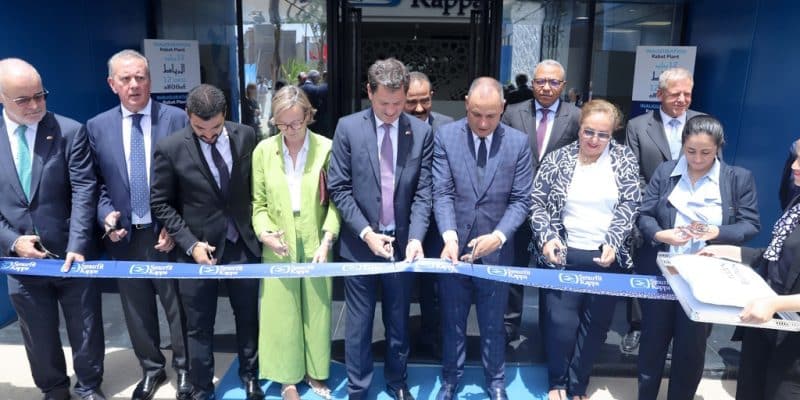Smurfit Kappa has just inaugurated a used paper recycling plant in the Ain Aouda industrial estate in the Rabat-Salé-Kénitra region of Morocco. This is the first plant of its kind to be set up by the producer of packaging made from recycled paper in Africa.
Smurfit Kappa is expanding in Africa. The Irish company, which has been making packaging from recycled paper since 2005, inaugurated its first recycling plant on the continent on 12 July 2023. The facility is located on a 25,000 m2 site in the Ain Aouda industrial estate in the Rabat-Salé-Kénitra region of Morocco. “The Casablanca-Rabat axis accounts for more than 70% of national consumption of cardboard packaging for industry, hence the choice of Rabat as the location for this plant,” explains Mounir Naciri, Chairman and CEO of Smurfit Kappa Morocco. This is the Group’s first greenfield site on the African continent.
At the new plant, used paper will be recycled into corrugated board, then sold to industries including agriculture, automotive, textiles, pharmaceuticals, e-commerce, as well as players in the meat, fishing and ceramics markets. “The production of this plant is entirely intended for consumption on the Moroccan market and will meet the needs of local and multinational customers established in Morocco”, emphasises Ryad Mezzour, the Moroccan Minister of Industry and Trade.
A solar-powered plant
The new facility also features “ultra-modern” equipment for manufacturing raw sheets from waste paper. All this equipment is powered by 1,500 solar panels with an installed capacity of 800 kWp. The panels will produce 1.3 GWh of electricity a year, covering more than 55% of the needs of Smurfit Kappa’s recycling plant in Morocco.
Read Also – MOROCCO: Reciclados will recycle used textiles to make clothes
The new facility also features technology to optimise gas consumption, reducing it by 18% compared with a conventional installation. The plant is also equipped with a water treatment system and a dual physico-chemical and biological water purification system similar to that of a wastewater treatment plant built in an urban environment, resulting in a 50% reduction in consumption.
“In addition, there is a system for heating the sanitary water in the offices and changing rooms, based on the re-use of the heat released when the compressors are running”, explains Ryad Mezzour, the Moroccan Minister for Industry and Trade. Together, these facilities will enable the plant to reduce its carbon footprint by 900 tonnes a year. The project cost €3 million.
Inès Magoum






